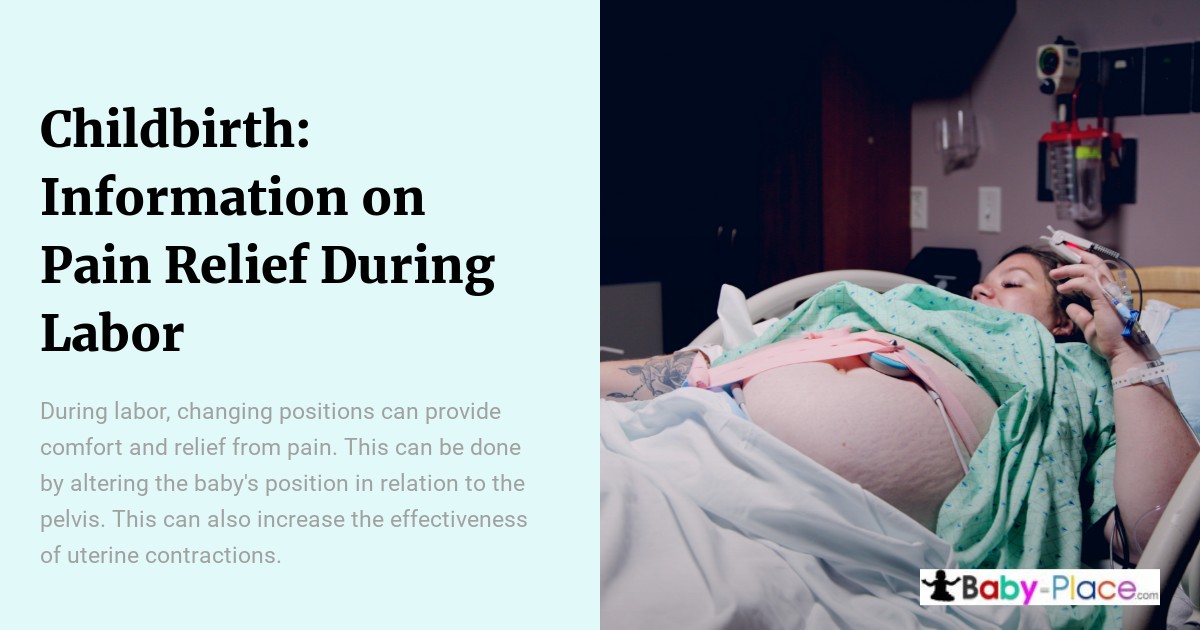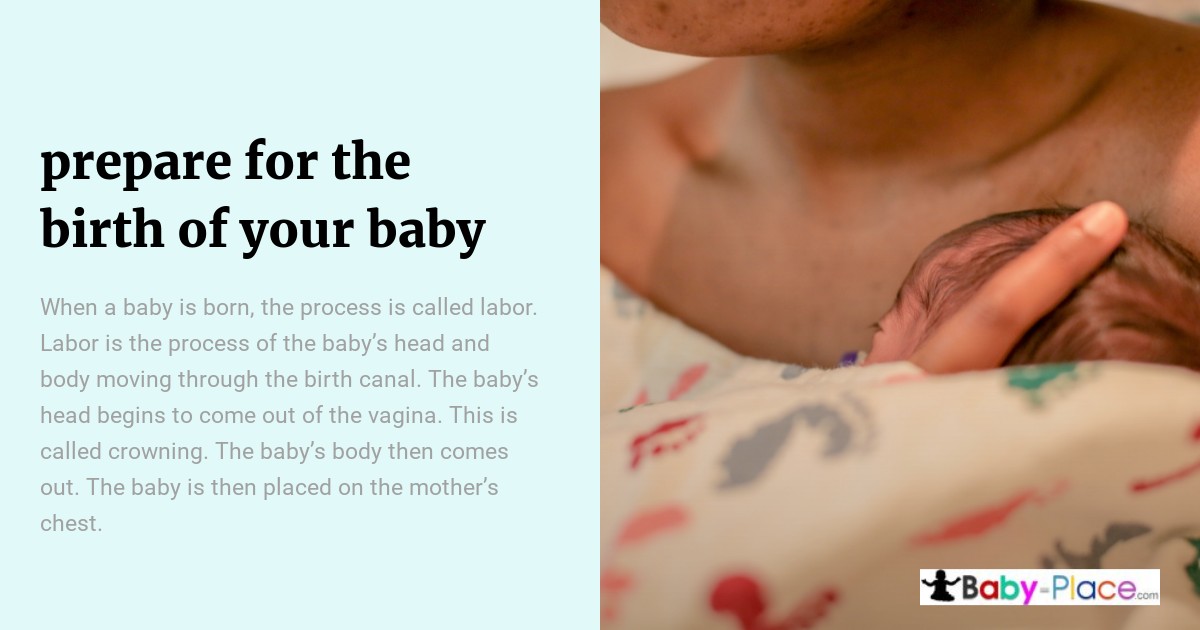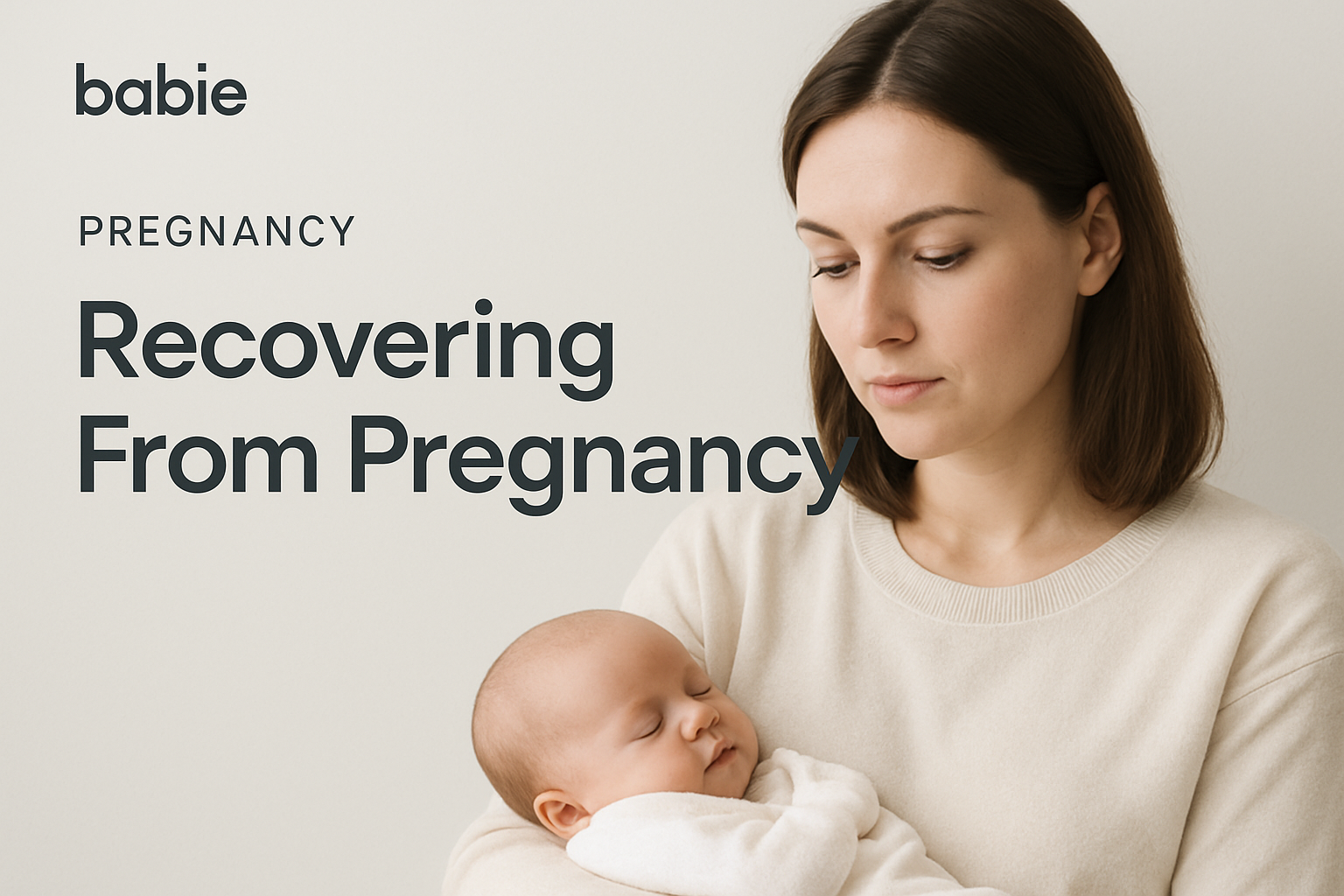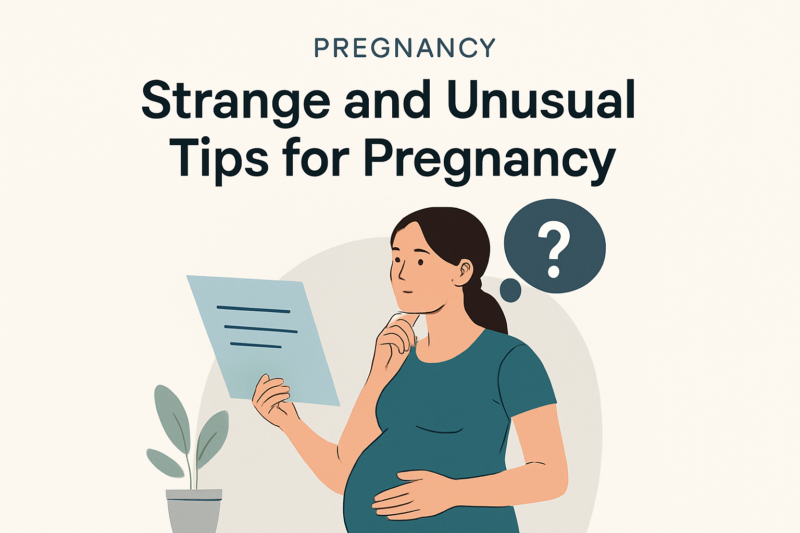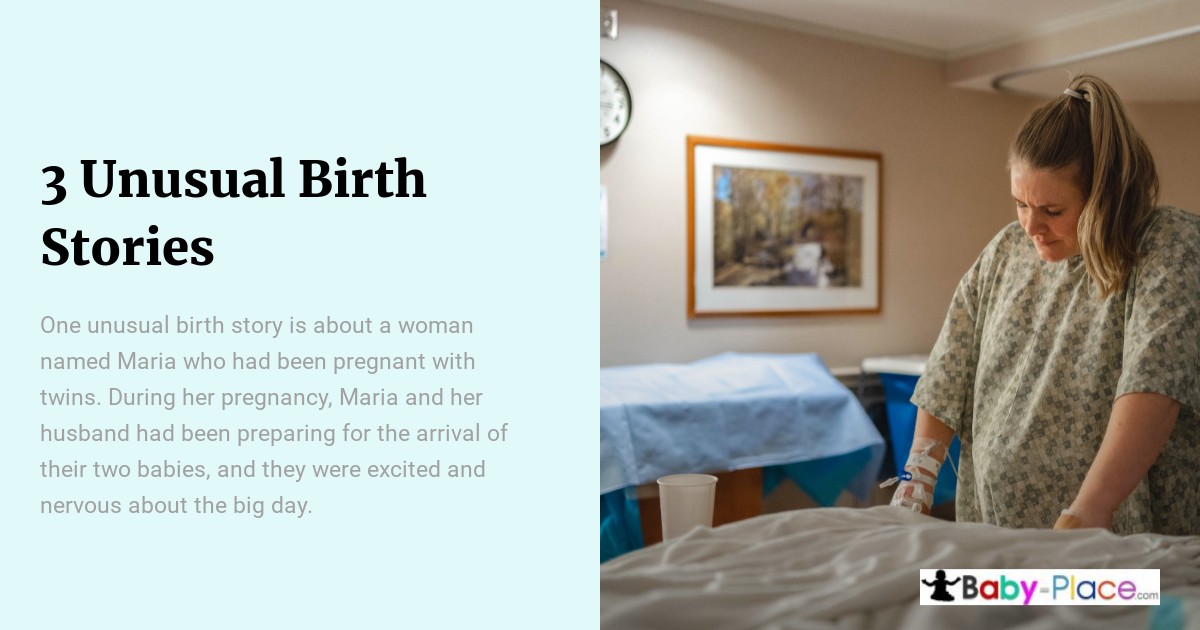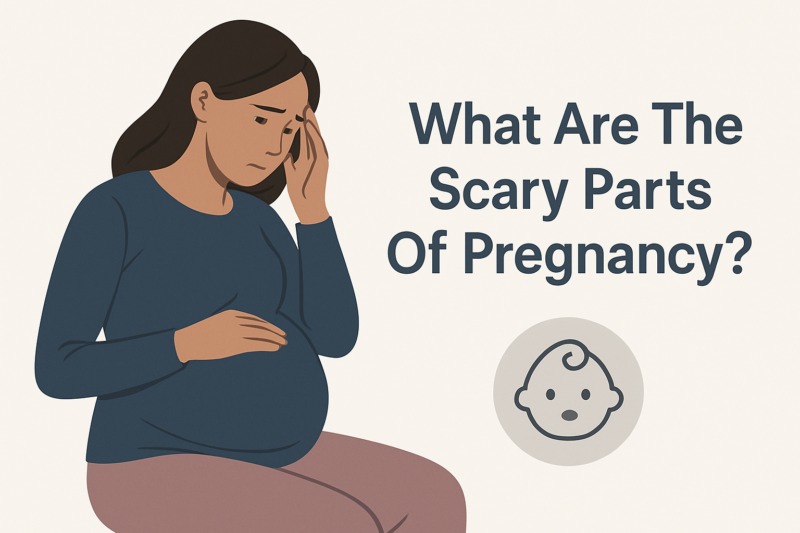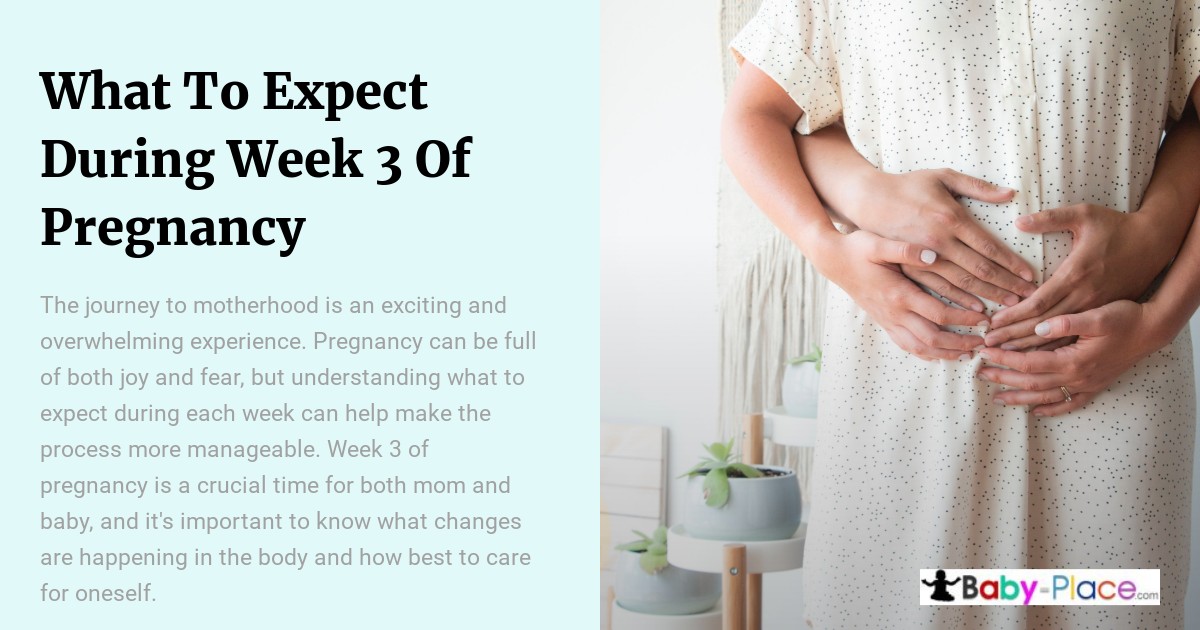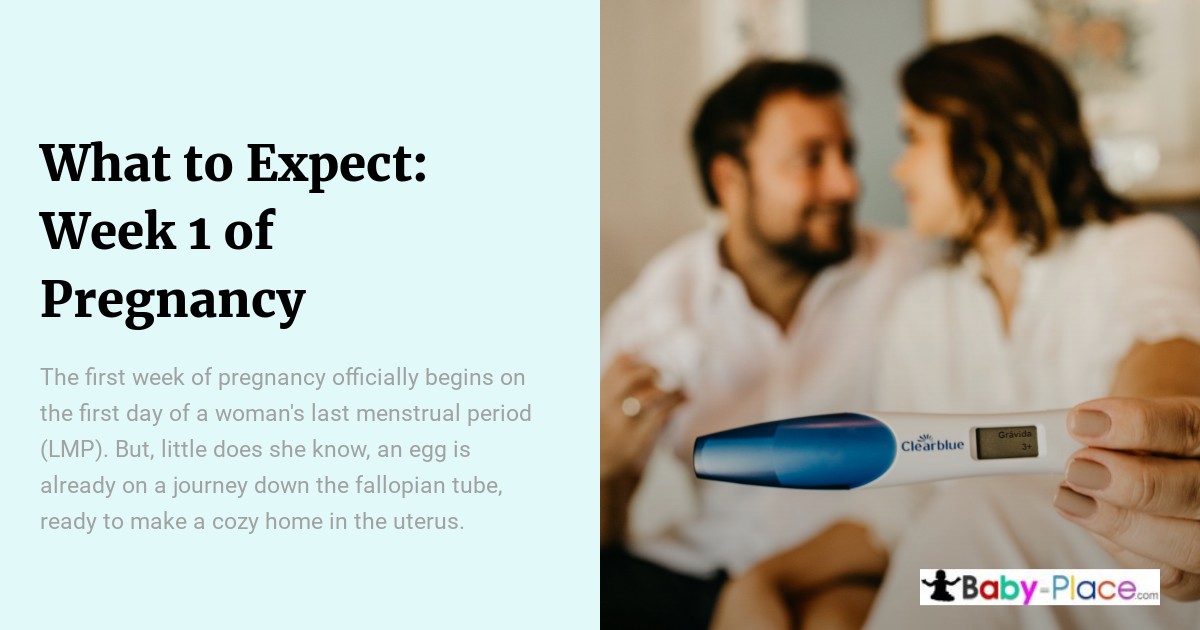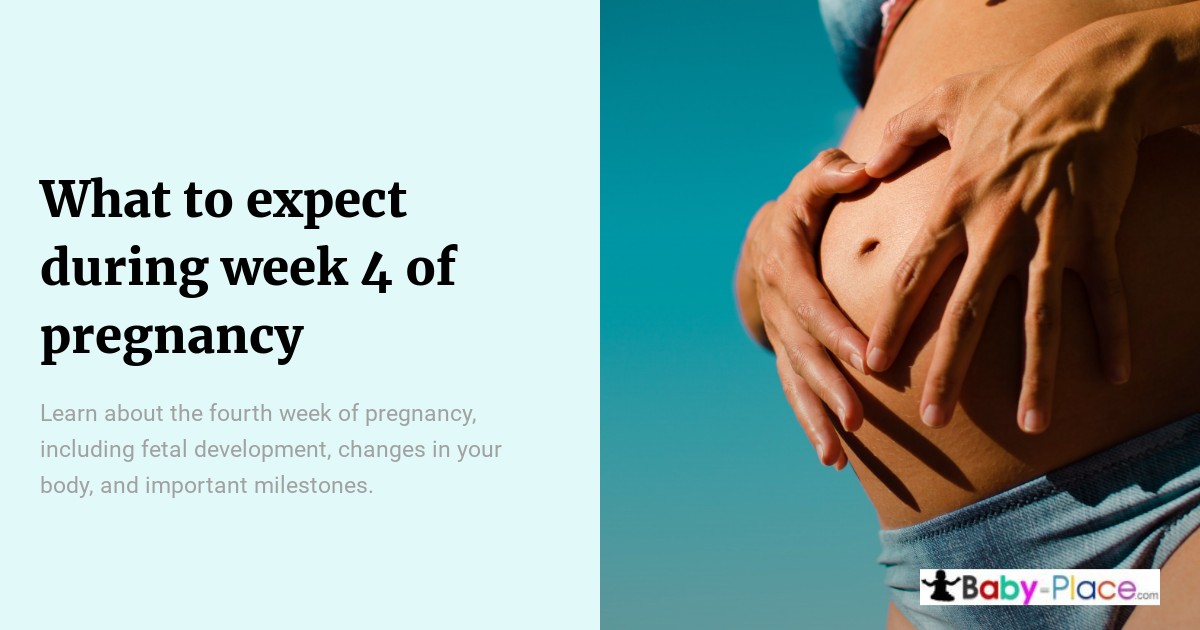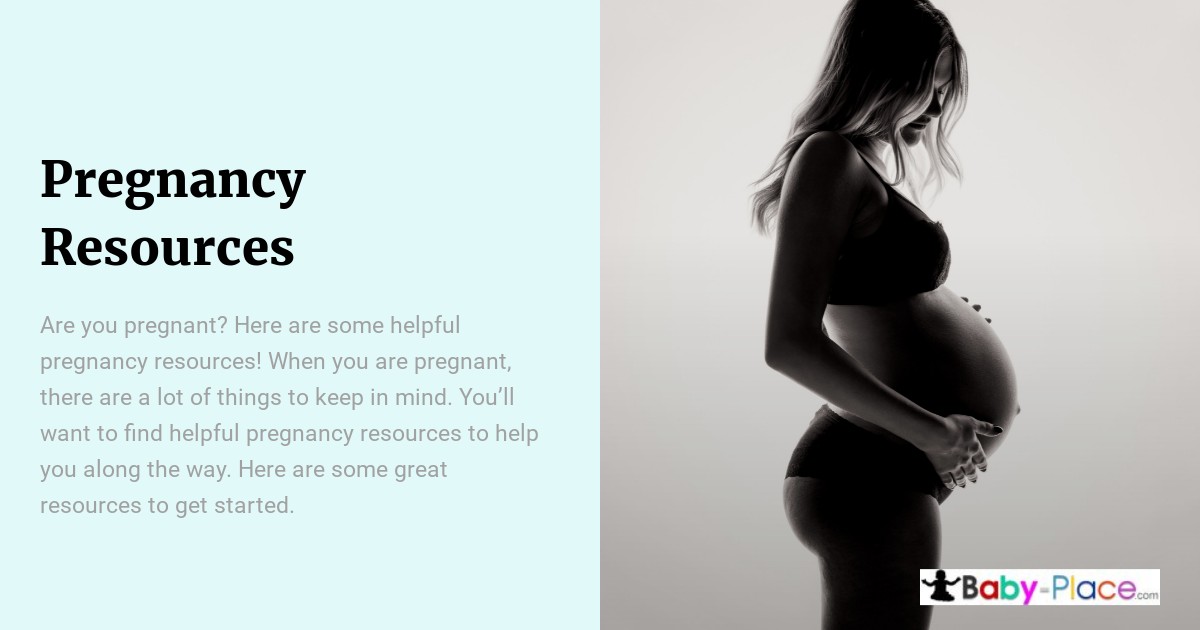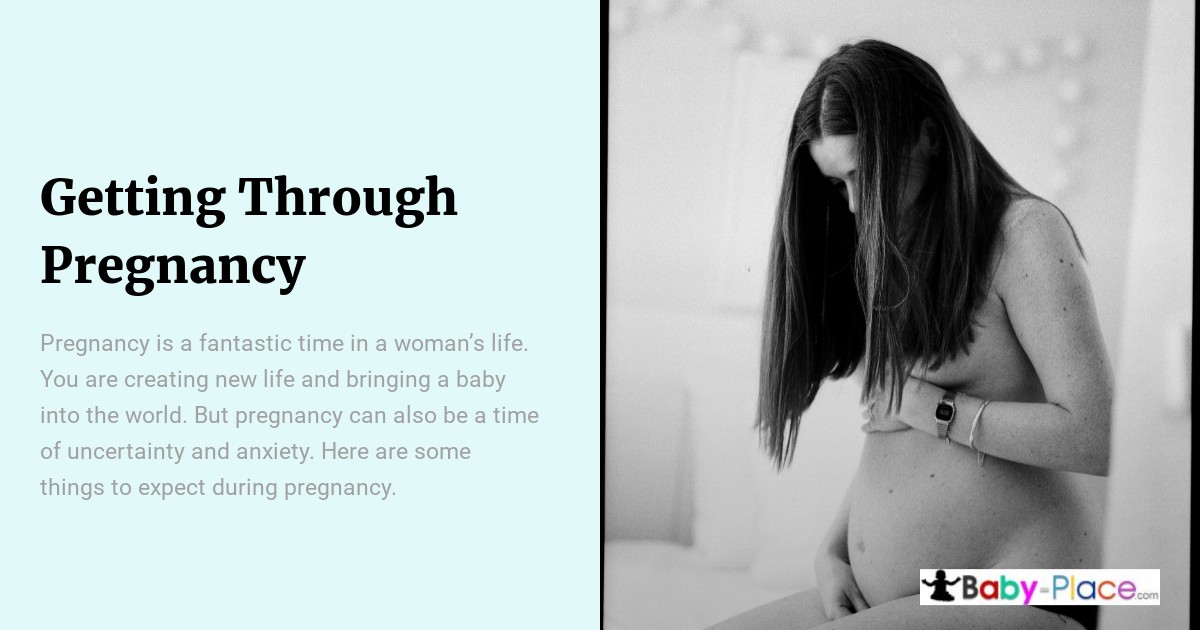
What to Expect During Pregnancy?
Pregnancy is a fantastic time in a woman’s life. You are creating new life and bringing a baby into the world. But pregnancy can also be a time of uncertainty and anxiety. Here are some things to expect during pregnancy.
Changes to Your Body that Might Suggest Pregnancy
Many changes to a woman’s body during pregnancy, but not all of them necessarily indicate pregnancy. For example, some women may experience nausea early on in their pregnancy, while others may not have any symptoms until later on.
Here are some other changes that may occur during pregnancy:
- Changes in breast size and appearance.
- Darkening of the nipples and areolas.
- Acne or rash on the skin.
- Mild swelling or bloating in the abdomen.
- Feeling more tired than usual.
- Urinating more often than normal.
- Spotting or bleeding, which may be the first sign of miscarriage.
Morning Sickness
Morning sickness is a common symptom of early pregnancy. It can start as early as the first few weeks after conception and may continue throughout pregnancy. Some women experience it only in the morning, while others have nausea and vomiting throughout the day.
High hormones cause morning sickness in a woman’s body during early pregnancy. Although there is no cure for morning sickness, there are some things that you can do to help relieve the symptoms:
- Eat small, frequent meals throughout the day instead of three large meals.
- Avoid foods that are high in fat or spice.
- Drink plenty of fluids, especially water, and juice.
- Rest as much as possible.
- Take over-the-counter medications such as ginger or Dramamine to help relieve nausea.
Pregnancy Stages
Pregnancy is divided into three stages: the first, second, and third trimesters.
The First Trimester: The first trimester is the earliest stage of pregnancy, lasting from week one to week 12. During this time, the baby is growing and developing in the womb. The mother’s body also changes as she adapts to her new role.
Some of the changes that may occur during the first trimester include:
- Nausea and vomiting are often referred to as morning sickness.
- Fatigue.
- Mood swings.
- Changes in breast size and appearance.
- Darkening of the nipples and areolas.
- Acne or rash on the skin.
- Swelling or bloating in the abdomen.
- Urinating more often than normal.
- Spotting or bleeding, which may be the first sign of miscarriage.
The Second Trimester: The second trimester lasts from week 13 to week 27. This is usually when most women feel better and have more energy. The baby is growing rapidly and begins to move around in the womb.
Some of the changes that may occur during the second trimester include:
- Weight gain.
- The appearance of stretch marks on the skin.
- Swelling or tenderness in the breasts.
- Increased thirst and urination.
- Changes in appetite.
- Mood swings.
The Third Trimester: The third trimester lasts from week 28 to week 40. This is the last stage of pregnancy, and it can be a time of both excitement and anxiety. The baby is almost ready to be born, and the mother’s body is preparing for labor and delivery.
Some of the changes that may occur during the third trimester include:
- Weight gain.
- The appearance of stretch marks on the skin.
- Swelling or tenderness in the breasts.
- Increased thirst and urination.
- Changes in appetite.
- Mood swings.
- Shortness of breath.
- Heartburn.
Things that Might Surprise You About Being Pregnant
Many things may surprise a woman about being pregnant. For example, some women may be surprised by the amount of weight they gain during pregnancy. Others may be surprised by the changes in their breasts or the amount of swelling in their abdomen.
Some women may be surprised by the amount of fatigue they experience or the mood swings they go through. And finally, many women are surprised by how quickly the third trimester goes and how soon their baby is ready to be born.
Problems With Concentration
Problems with concentration can be a common issue during pregnancy. This can be due to the increase in hormones, the physical changes occurring, or the mother taking care of two people instead of one.
There are a few things that you can do to help improve your concentration during pregnancy:
- Get plenty of rest.
- Eat healthy foods and drink plenty of fluids.
- Avoid caffeine and alcohol.
- Exercise regularly.
- Take breaks throughout the day to relax and refresh yourself.
- Practice meditation or deep breathing exercises.
- Write down what you need to do each day and check off items as you complete them.
Bra Size
A woman’s bra size can change during pregnancy, and it’s essential to choose a bra that is both comfortable and supportive. Many women find that they need a larger bra size during pregnancy, and it’s crucial to buy bras that fit well and offer plenty of support.
There are a few things to keep in mind when choosing a bra during pregnancy:
- Choose bras with wide straps and a supportive band.
- Make sure the cups are large enough to accommodate your growing breasts.
- Look for bras made from soft, stretchy fabric that will be comfortable to wear.
- Avoid underwire bras, as they may be uncomfortable or dangerous during pregnancy.
- Check the fit of your bras regularly, and adjust as needed.
- Remember that your bra size may change throughout pregnancy, so buy several bras in different sizes to accommodate your changing body.
Hair and Nails
Women often experience changes in their hair and nails during pregnancy. The hair may become thicker and more lustrous, while the nails may become stronger and less likely to break.
It’s essential to take care of your hair and nails during pregnancy by following a few simple tips:
- Make sure you eat a balanced diet with plenty of protein and healthy fats.
- Avoid excessive exposure to sunlight, as it can damage the hair and nails.
- Use a good quality shampoo and conditioner, and make sure you rinse your hair thoroughly after swimming.
- Apply a good quality moisturizer to your nails regularly, and use cuticle oil if needed.
- Avoid harsh chemicals on your hair or nails, such as bleach or nail polish remover.
- Try to keep your nails short and filed smooth to avoid breakage.
- If you are experiencing changes in your hair or nails, talk to your doctor or midwife for advice on the best care for them.
Joint Mobility
Many women experience changes in their joint mobility during pregnancy. The joints may become looser and more flexible, making it difficult to maintain balance.
It’s essential to take care of your joints during pregnancy by following a few simple tips:
- Make sure you eat a balanced diet with plenty of protein and healthy fats.
- Avoid excessive exposure to sunlight, as it can damage the skin.
- Use a good-quality moisturizer to keep your skin hydrated.
- Avoid harsh chemicals on your skin, such as bleach or nail polish remover.
- If you are experiencing changes in your skin, talk to your doctor or midwife for advice on the best care for it.
The Nesting Instinct
Many women experience the nesting instinct during pregnancy, a strong urge to prepare for the arrival of their baby. This can manifest as a desire to clean and organize the home, prepare meals and snacks, or sew blankets and clothes. Some women find the nesting instinct very helpful, while others find it overwhelming.
Here are a few tips to help you manage the nesting instinct:
- Start with one task and complete it before moving on to the next.
- Take breaks throughout the day to relax and refresh yourself.
- Ask for help from friends or family members if you need it.
- Remember that you don’t have to do everything yourself. The baby will not arrive until he or she is ready.
- Focus on completing essential tasks rather than simply decorative or superfluous ones.
- Try to relax and enjoy the process of preparing for your baby’s arrival.
Mood Swings
Mood swings are common during pregnancy, as the body experiences hormonal changes. Some women find that their mood swings are mild and manageable, while others find them more severe and disruptive.
Here are a few tips to help you manage mood swings during pregnancy:
- Talk to your doctor or midwife about how you’re feeling. They may be able to suggest treatments or strategies that can help.
- Make sure you eat a balanced diet with plenty of protein and healthy fats.
- Avoid excessive exposure to sunlight, as it can aggravate mood swings.
- Exercise regularly, paying special attention to activities that improve mood and energy levels.
- Get enough sleep each night.
- Avoid caffeine and alcohol, as they can aggravate mood swings.
- Talk to your friends and family members about how you’re feeling, and ask for their support.
- If you are experiencing severe mood swings or causing significant distress, talk to your doctor or midwife for help.
Skin Changes
Many women experience changes in their skin during pregnancy, such as increased pigmentation, stretch marks, and acne.
Here are a few tips to help you manage skin changes during pregnancy:
- Make sure you eat a balanced diet with plenty of protein and healthy fats.
- Avoid excessive exposure to sunlight, as it can aggravate skin changes.
- Use a good-quality moisturizer to keep your skin hydrated.
- Avoid harsh chemicals on your skin, such as bleach or nail polish remover.
- If you are experiencing changes in your skin, talk to your doctor or midwife for advice on how to best care for it.
Varicose Veins, Hemorrhoids, and Constipation
Varicose veins, hemorrhoids, and constipation are common problems during pregnancy.
Here are a few tips to help you manage them:
- Wear compression stockings to help improve blood flow and reduce the risk of varicose veins.
- Avoid sitting or standing for long periods.
- If you are experiencing pain or discomfort in your legs or feet, talk to your doctor or midwife for advice on best managing it.
- Take regular breaks throughout the day to walk around and stretch your muscles.
- Use a stool softener to help relieve constipation.
- Drink plenty of fluids, especially water, to help keep your bowel movements regular.
- If you are experiencing hemorrhoids, use a topical hemorrhoid cream or ointment to help relieve the pain and swelling.
- Talk to your doctor or midwife if you are experiencing any of these problems during pregnancy, as they may be able to suggest treatments or strategies that can help.
Shoe Size
Shoe size is essential to consider when pregnant, as your feet may swell and change size.
Here are a few tips to help you choose the right shoes during pregnancy:
- Choose a comfortable shoe with plenty of room for your feet to expand.
- Avoid shoes that are tight or constricting.
- Choose a supportive shoe with good arch support.
- Make sure the shoe’s heel is low enough so that you can comfortably walk in it.
- If you are experiencing pain or discomfort in your feet, talk to your doctor or midwife to best manage it.
Taking Care of Yourself Emotionally
What Feelings Can Happen?
Pregnancy can be a time of great joy and anticipation, but it can also be a time of anxiety and uncertainty. Many women feel various emotions during pregnancy, including happiness, excitement, fear, anxiety, and depression. It’s normal to feel various emotions at different points during pregnancy, and it’s essential to allow yourself to experience them all.
Depression: Depression is a common emotion that can occur during pregnancy. It is characterized by feelings of sadness, hopelessness, and emptiness. If you are experiencing depression during pregnancy, it is vital to get help. There are many treatments available for depression, and with proper treatment, you can feel better.
If you feel suicidal or have thoughts of harming yourself or your baby, please seek help immediately. Some people can help you, and there is no shame in asking for help. You are not alone.
Anxiety: Anxiety is another common emotion that can occur during pregnancy. It is characterized by feelings of worry, fear, and unease. If you are experiencing anxiety during pregnancy, there are things that you can do to help relieve the symptoms.
Some tips include:
- Talk to your doctor or midwife about your fears and concerns.
- See a therapist who can help you deal with your anxiety.
- Practice relaxation techniques such as deep breathing or yoga.
- Get regular exercise.
- Avoid caffeine and alcohol.
- Eat healthy foods and get plenty of sleep.
Here are some other tips to help you take care of yourself emotionally during pregnancy:
- Talk to your partner, family, and friends about how you’re feeling. They can provide support and understanding.
- Join a support group or online forum for pregnant women. This can be a great way to share experiences and advice with other women going through the same thing.
- Make sure to get plenty of rest. Pregnancy can be physically and emotionally taxing, so it’s essential to take care of yourself both mentally and physically.
- Take some time for yourself each day to relax and de-stress. Read a book, listen to music, take a walk, or do something else that you enjoy.
- Seek professional help if you’re feeling overwhelmed or depressed. Pregnancy can be a difficult time for some women, and if you’re struggling, it’s best to seek help from a qualified therapist.
Taking Care of Yourself Physically
In addition to taking care of yourself emotionally, it’s essential to take care of yourself physically during pregnancy.
Here are some tips:
- Stay hydrated by drinking plenty of fluids, especially water and juice.
- Eat a healthy diet rich in fruits, vegetables, and whole grains. Avoid fatty or processed foods.
- Get regular exercise, but consult your doctor first to ensure that it is safe for you to do so. Walking, swimming, and prenatal yoga are great exercises for pregnant women.
- Take prenatal vitamins to ensure that you’re getting the nutrients you need.
- Avoid smoking, alcohol, and caffeine. All of these can be harmful to both the mother and the baby.
- See your doctor regularly for checkups. This is when it’s essential to monitor both you and the baby’s health.
What to Expect During Labor and Delivery?
The experience of labor and delivery is different for every woman. Some women may have shorter, easier labor while others may have a longer, more difficult one. It is impossible to predict exactly how your labor will progress, but you can expect general things.
Active labor usually begins when contractions become regular and more intense. You may feel pain in your lower back or abdomen or both. The contractions will likely become closer together and last longer as labor progresses. You may also experience other symptoms like nausea, diarrhea, and vomiting during active labor.
When you are in active labor, your doctor will likely recommend that you go to the hospital so that they can monitor you and your baby. You may be given an epidural to help relieve the pain of labor. When the cervix is fully dilated, the baby will be born. This usually happens within a few hours of active labor starting.
After the baby is born, you will experience the postpartum period. The postpartum period lasts for about six weeks, and during this time, you will experience a range of emotions from joy to fatigue. You will also need to care for your newborn baby.
Risks and Complications Associated With Labor and Delivery
Most women give birth without any problems, but it’s essential to be aware of labor and delivery’s potential risks and complications.
Some of the most common risks include:
Preeclampsia: This condition can occur during pregnancy or after delivery and is characterized by high blood pressure, fluid retention, and protein in the urine. Left untreated, preeclampsia can lead to serious health problems for both mother and baby.
Labor induction: In some cases, labor may need to be induced to avoid problems such as preterm labor or fetal distress.
Cesarean section: A cesarean section is a surgical procedure in which the baby is delivered through a cut made in the mother’s abdomen. A c-section is sometimes necessary if the baby is in distress or if the mother has health problems that cause a vaginal delivery risk.
Postpartum hemorrhage: This condition occurs after delivery and is characterized by excessive bleeding. It can be dangerous for both mother and baby if left untreated.
Caring for Your Newborn Baby
Once your baby is born, there are a few things that you will need to know about newborn care.
Here are some tips:
Keep your baby warm: Newborns need to be kept warm, especially during the first few weeks of life. Make sure to dress your baby in layers and use blankets, hats, and booties to keep them warm.
Feed your baby: Newborns need to be fed every few hours, so make sure to have a plan for feeding your baby. Breastfeeding is the best option, but plenty of formula options are available if you can’t or don’t want to breastfeed.
Burp your baby: Babies tend to swallow a lot of air while they’re eating, which can cause gas and stomach discomfort. Burping your baby after each feeding can help relieve these symptoms.
Change your baby’s diaper often: Diapers should be changed every few hours to avoid infection and irritation.
Put your baby to sleep on his or her back: SIDS, or sudden infant death syndrome, is a leading cause of death in babies less than a year old. Putting your baby to sleep on their back can help reduce the risk of SIDS.
Pregnancy is a time of many changes, both physical and emotional. It can be a time of great joy and anticipation, as well as anxiety and uncertainty. But with the correct information and preparation, you can get through pregnancy safely and successfully.
Be sure to take care of yourself mentally and physically in getting through pregnancy, stay informed about what to expect during labor and delivery, and know how to care for your newborn baby.
Frequently Asked Questions:
What are some common body changes to expect during pregnancy?
During pregnancy, women may experience changes such as nausea, changes in breast size and appearance, darkening of the nipples and areolas, acne or rash on the skin, mild swelling or bloating in the abdomen, fatigue, frequent urination, and spotting or bleeding.
How can morning sickness be managed during pregnancy?
Morning sickness can be managed by eating small, frequent meals throughout the day, avoiding high-fat or spicy foods, drinking plenty of fluids like water and juice, getting adequate rest, and taking over-the-counter medications such as ginger or Dramamine to relieve nausea.
What are the three stages of pregnancy and their key characteristics?
Pregnancy is divided into three trimesters. The first trimester (weeks 1-12) includes symptoms like morning sickness, fatigue, and mood swings. The second trimester (weeks 13-27) often brings more energy, rapid baby growth, and physical changes like weight gain and stretch marks. The third trimester (weeks 28-40) involves preparing for labor, with symptoms like shortness of breath, heartburn, and continued weight gain.
What are some tips for managing mood swings during pregnancy?
To manage mood swings, talk to your doctor or midwife, eat a balanced diet, avoid excessive sunlight, exercise regularly, get enough sleep, avoid caffeine and alcohol, seek support from friends and family, and consider relaxation techniques like meditation or deep breathing.
What should you know about newborn care after delivery?
Newborn care includes keeping the baby warm with layers and blankets, feeding every few hours (breastfeeding or formula), burping after feedings, changing diapers frequently, and always putting the baby to sleep on their back to reduce the risk of SIDS (Sudden Infant Death Syndrome).


